When you purchase an item after clicking a link from this post, we may earn a commission.
Devin: What do you see as your superpower?
Susan: I believe my superpower is storytelling and sharing stories. And the flip side of that, in order to have that superpower, I've had to learn the ability to listen and to listen really well.
Susan Sloan is the author of A Seat at the Table: Women, Diplomacy, and Lessons for the World, which is about the positive impact of having women work in diplomacy and leadership. She was a member of the delegation hosted by the Israeli Foreign Ministry, which included me.
The whirlwind trip didn’t give the two of us much time to discuss her book, so I was thrilled to have the opportunity to visit with her to learn more about it. Now, having read it, I enthusiastically endorse it.
AI Summary
Susan Sloan, author of A Seat at the Table, highlights the positive impact of having women work in diplomacy and leadership roles for gender and equity issues.
Diversity of thought through gender, race, religion, culture, origin, and socioeconomic status around the decision-making table makes companies more profitable and more likely to create successful peace treaties.
Retaining women in senior-level roles and setting targets, such as a 40-40-20 gender split ratio, creates significant culture change within organizations.
Both genders are needed at the table to create the magic of empowerment and growth in any organization.
Sloan believes that her superpower is storytelling and advises that it can be developed by being a good listener, being concise and detailed, reading the audience, and making the listener feel like they are part of the story.
Sloan's recent book, A Seat at the Table, contains never-before-told stories from prominent women diplomats and leaders. It is aimed at young people coming into their careers or women in diplomacy, but it can benefit all leaders.
Women in diplomacy have paved the way for future women and broken barriers and stereotypes in diplomacy.
Women bring unique perspectives and skills to leadership roles that bring positive outcomes such as greater empathy and emotional intelligence.
Sloan highlights that investing in women's professional development is essential to retain them in leadership.
The pandemic has spotlighted the need for emotional intelligence and empathy in diplomacy and leadership to support and reassure citizens.
New Degree Press published the book near the pandemic’s peak emotional impact in November 2020. “I interviewed a little more than 30 women leaders, ambassadors, foreign ministers, and government officials from around the world, and their take on leadership,” Susan says.
The book is groundbreaking. “Every single leader I interviewed and sat down with told me two things,” Susan says. “One, ‘I've never told anyone this before, Susan.’ And two, ‘I can't believe you just asked me that.’ So, I knew I was on to something very, very special.”
“The whole idea of why having different people at the table matters is to have diversity of thought,” she says. “The way we think is different, so that creates change in epic proportions.”
The results are clear, Susan says. “One, it makes companies more profitable. Two, it makes peace treaties more likely to last and not fail.”
The problem isn’t solved when you get women to the table. You’ve got to keep them there. “There are many studies out there that show that women are leaving senior-level roles because there's a lack of flexibility in the workplace, and they're not getting the support that they need,” she says.
She also makes clear that diversity doesn’t end with gender. “When we're looking at diversity around the decision-making table, we're looking at gender; we're looking at race, religion,” Susan says. “Sometimes those things aren't coming up in data points. We're looking at socioeconomic status. We're looking at how people identify by sexual orientation, all those different factors.”
She says, “The first thing when you look around the table is to ask, ‘Who's missing?’” Susan and I thoroughly enjoyed the group assembled by the Foreign Ministry for our visit to Israel because they seemed to have done such an effective job of asking, “who’s missing?” until they got it right.
With respect to the narrower topic of gender diversity, Susan suggests a target level of representation:
You have to have the breakdown of 40 percent men, 40 percent women, and 20 percent either. Now, that 20 percent allows for flexibility because in your workforce, middle management and senior level leadership, you may not have qualified people, whether men or women, coming through your door at a certain time. So that 20 percent allows for the flexibility of of going and swaying different ways. So it's that 40, 40, 20 split—that ratio creates significant culture change.
In the book and her career, Susan leverages her superpower: storytelling.
How to Develop Storytelling As a Superpower
Susan shares how she’s found storytelling to be important in her work:
If you look at many leaders throughout history that have employed the power of listening, you find that they, one, have been very successful. But two, they're taking information, and then they're using it and sharing it with others. So, the power of storytelling is something that I've really grabbed onto. I've realized that because different people trust me and trust me with their stories, I have the responsibility to share them with other people.
Susan shared a story that demonstrates her storytelling superpower:
Last year I was asked by the president of Georgia—not University of Georgia, although I did go to University of Georgia—go Dawgs—but the president of Georgia in Tbilisi in Europe.
I was asked to come over there for a conference about women and how they're dealing with conflict right now. Georgia is facing different issues with some neighbors similar to what maybe Ukraine might be dealing with right now as well.
Georgia got leaders together from all over the world, all women, to talk about not only conflict but what we can do to make a difference and create relationships and have resources.
So, I was sitting there at the conference. I held a session, I moderated a session from women war correspondents, and it was a very powerful session. Later, when we were meeting with different women, I would share stories not only from my book but from diplomatic experiences I've been in.
The impact of being vulnerable and sharing personal stories and also stories from other women created the atmosphere for other people to share their vulnerabilities. That gave lessons of not only hope but solutions of what women in Georgia can do.
Different leaders were there, and even leaders from Ukraine were there. That sharing of storytelling and going back to storytelling, of course, really created an atmosphere in that people were open and candid, and you could feel it in the entire conference.
And it was such a pleasure not only to be there but an honor. In addition to that, months later, the President's team reached out to me to write a letter about this conference that they could share. In essence, give me a story that I can share with others so the conference can happen again. So, they entrusted me asking me to write a story about it.
That's just what I did. I believe that the power of being vulnerable, listening and sharing and creating that atmosphere was really impactful.
Susan offered some excellent advice for developing storytelling as a superpower:
First, practice the art of listening.
You have to have a beginning, middle and end.
Be concise yet detailed.
If you're not a funny person, don't try to be funny.
If you want to create a sense of vulnerability, then feel okay to be vulnerable, and it's also okay to mess up.
Read the room. Read the audience; look around the room. How are people reacting to [the story]?
Susan concludes with some thoughtful advice:
The best storytellers that I love to listen to, they usually don't speak with a lot of notes. They look at the audience, they have a little bit of movement. They're personable; they're relaxed; they're conversational. You really do feel like you're sitting at their kitchen table listening to a story. That's the real, I think, art of storytelling.
If you can feel like you're at a kitchen table with somebody over a cup of coffee or a cup of water or a cup of tea, whatever it is, and you're sharing a story, you never know how it's going to impact somebody.
By following Susan’s advice and example, you can strengthen your ability to listen and tell powerful stories, enabling you to do more good in the world.
Guest-Provided Profile
Susan Sloan (she/her)
About: Susan Sloan's Book, A Seat at the Table: Women, Diplomacy, and Lessons for the World, shares the impact of gender-diversified leadership and why varied voices lead to stronger resolutions and enhanced team dynamics. Research proves that when women are involved in peace processes, an agreement is 35% more likely to last at least 15 years. Additionally, higher levels of gender equality are associated with a lower tendency for conflict. Many countries face challenges of migration, terrorism, climate change, and the spread of fast-paced technology. Those who are sitting around the table will change the course of history and redefine how we solve critical problems.
Website: susansloan.com
Biographical Information: Susan Sloan is a communications strategist and author of A Seat at the Table: Women, Diplomacy, and Lessons for the World. She works in diplomacy, engaging with diplomats, government officials, community organizers, and international leaders. She has met with more than 80 countries through diplomacy, advocacy, and experiential education. Susan focuses on gender and equity to advise leaders on policy and diplomatic affairs. Heads of state, Fortune 500 companies, universities, nonprofits, foreign ministries, and international institutions have hosted Susan to speak on gender parity, equity, and equality.
Her global communications career spans multiple sectors, including for-profit corporations, NGOs, and government, where she designs and launches communication strategies to transform organizations. At the age of 30, she completed a life goal of visiting all seven continents. Susan holds a master's degree in Global Strategic Communications from Georgetown University and graduated magna cum laude with a bachelor's degree in Journalism with a major in Public Relations and a minor in Spanish from the University of Georgia. She resides in both Washington, D.C. and Atlanta, Georgia.
Twitter Handle: @realSusanSloan
Personal Facebook Profile: fb.com/realsusansloan
Linkedin: linkedin.com/in/susansloan76/
Instagram Handle: @realSusanSloan

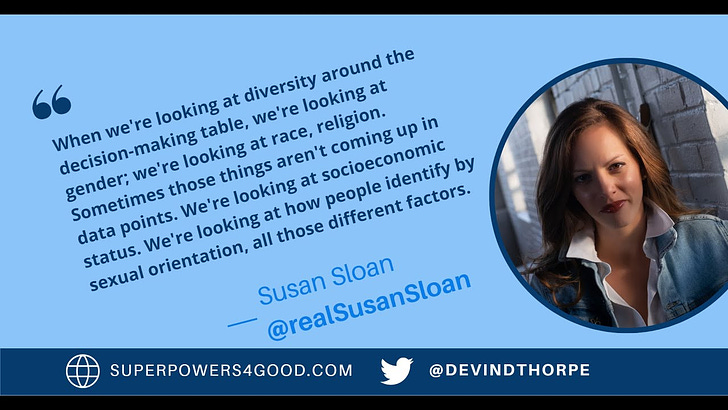


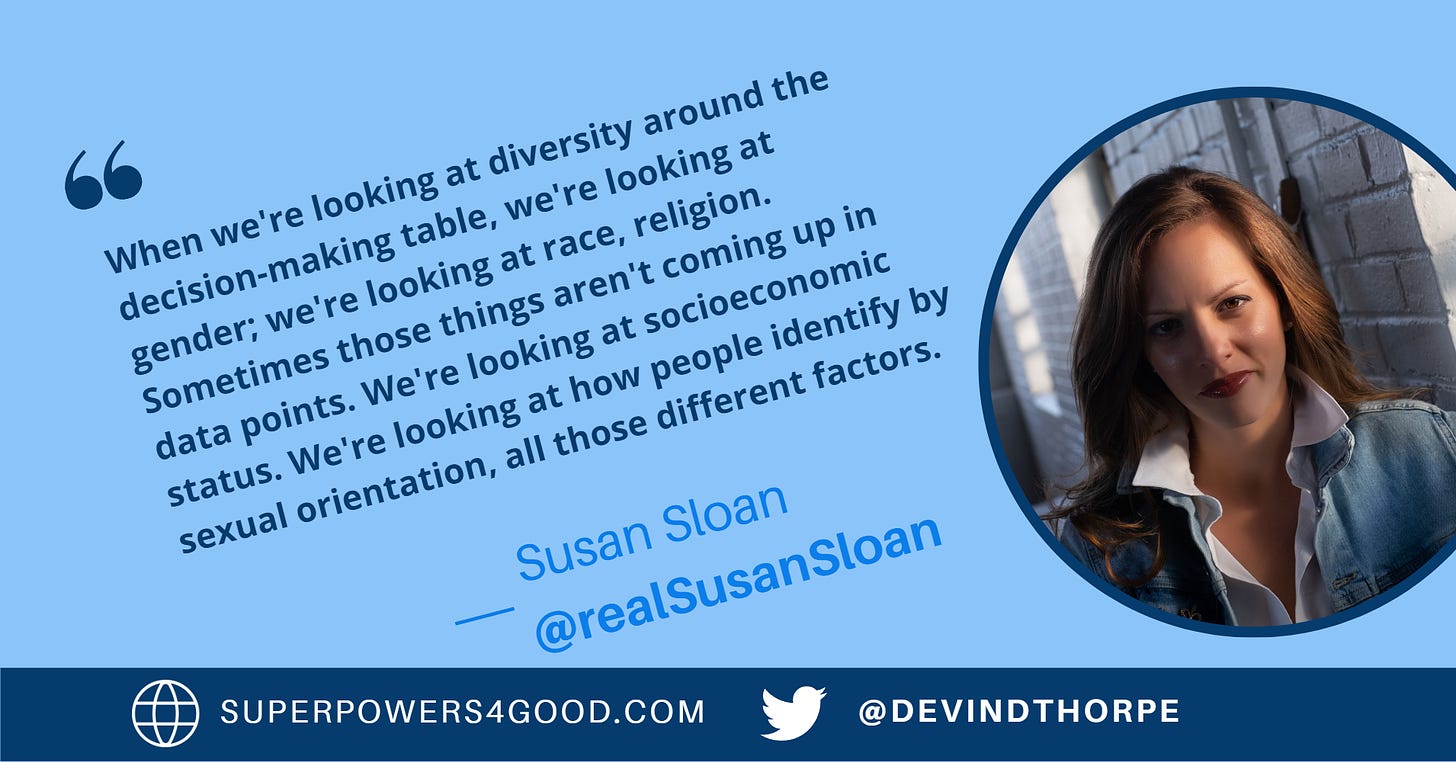
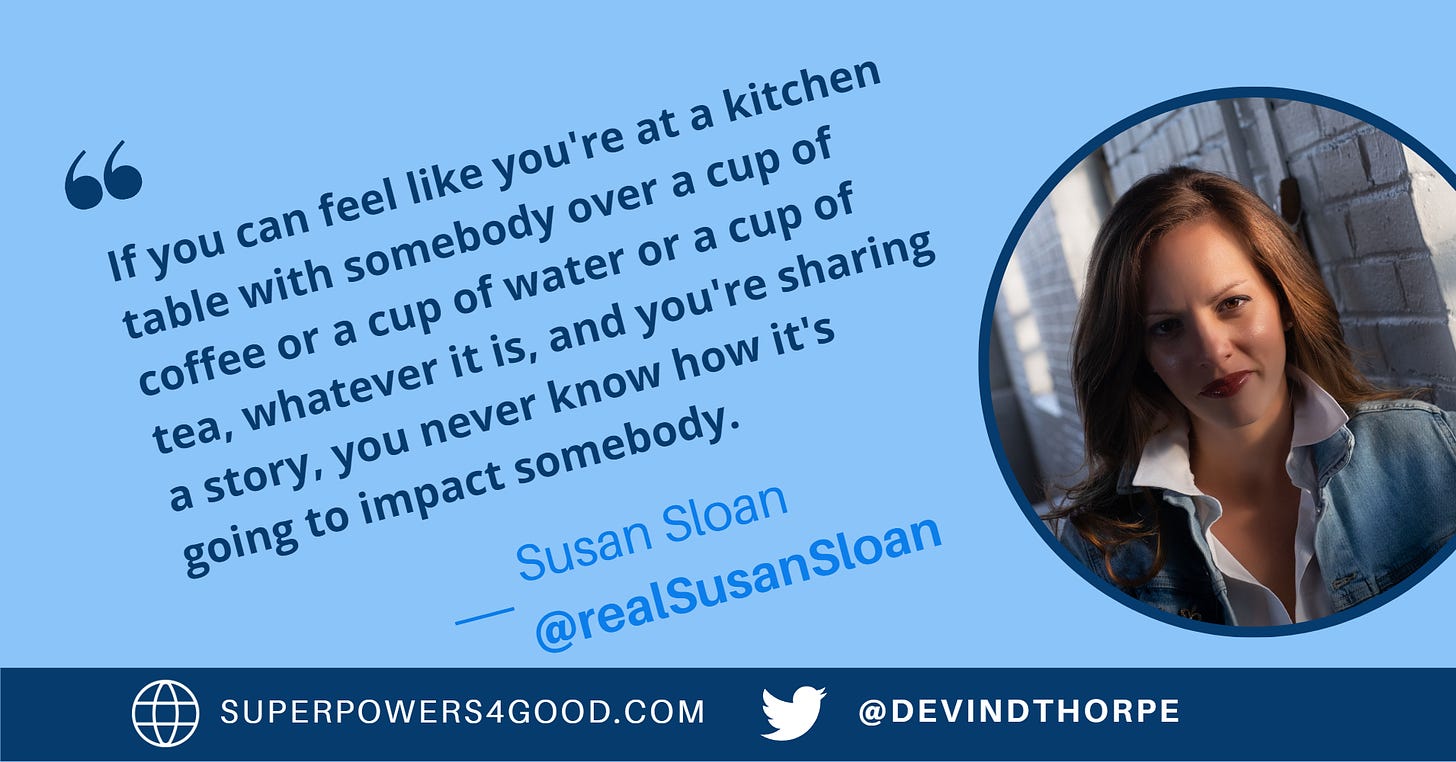



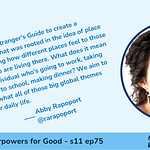













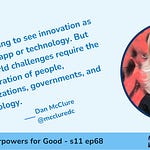
Author Shares the Power of Having Women at the Table